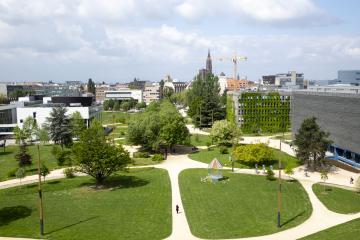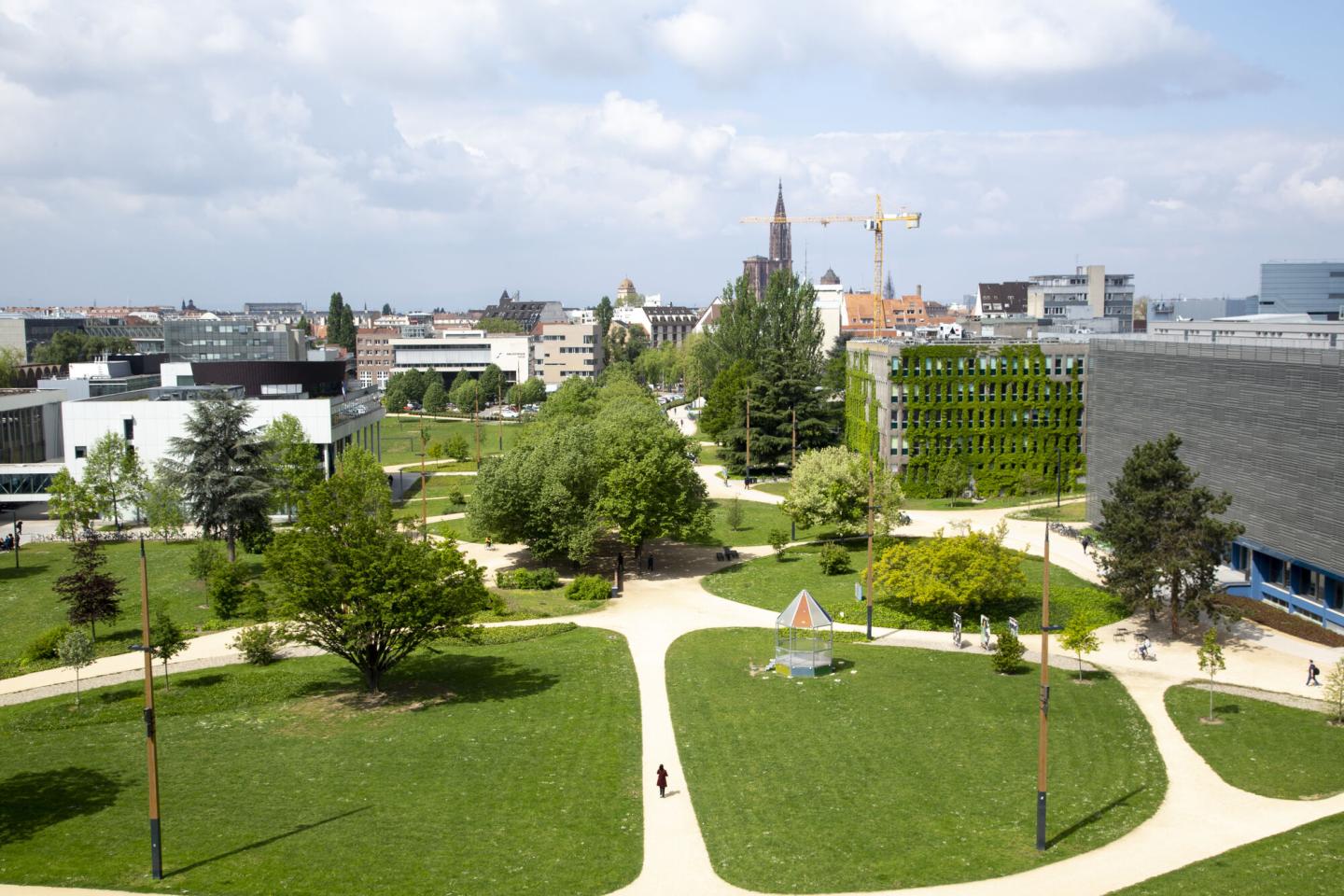
The HDR is a national higher education diploma that can be obtained after a doctorate. This qualification allows associate professors to apply for a position as full professor1, to be a PhD adviser, or to be an external dissertation committee member.
The candidate must be supervised by an HDR-qualified adviser and must submit his or her file to the university where the adviser works. The file is then sent by the doctoral college to the doctoral school concerned.
The doctoral school then appoints two external examiners/experts, with no direct link to the candidate, to evaluate the file. The proposals are then examined by the members of the select research commission who give the authorization to register or not. Once authorization has been granted, the adviser proposes an examination board and defense date at least two months before the presumed date of the defense.
The examination board appointed by the president is composed of at least five members chosen from among the HDR-qualified faculty of public higher education institutions, the research directors of public scientific and technological institutions, and at least half of the members must be French or foreign personalities from outside the institution who are recognized for their scientific competence. At least half of the examination board must be composed of full professors or the equivalent. Among the members authorized to supervise research, three are external examiners.
The defense is organized within 18 months of the date the select research commission added the candidate to the qualifying list. Find the complete procedure on the University of Strasbourg’s website.
1To apply for a position as full professor, researchers who are not associate professors must have obtained the PU qualification from the CNU.
Christophe Godlewski, Associate Director of the Augustin Cournot Doctoral School and Full Professor at the LaRGE research center, gives some advice on the University of Strasbourg's evaluation criteria for obtaining authorization to register:
- Scientific maturity of the candidate (production, influence, ...): It is important to have a sustained and regular scientific production with several classified publications (at least 5 HCERES publications) including at least one A rank, as well as recent publications (at least one in the last 3 years).
- Ability to master a research strategy in a sufficiently broad scientific or technological field (project management experience, etc.): The management of scientific projects (at least as a co-leader) should be highlighted.
- Degree of autonomy (obtaining funding in one's own right, depending on the discipline, rank of signature on publications, ...): Being able to demonstrate the ability to obtain funding for research projects following calls for tenders (at least as a co-sponsor) is highly appreciated.
- Ability to supervise research project (experience in project management, number and types of people supervised, duration of supervision, ...): It is useful to highlight all supervisory experience, especially those related to research theses.
Here is some feedback from Laurent Weill, director of the LaRGE research center, on the role of HDR-qualified adviser:
“For me, supervising an HDR consists of assisting a colleague to put together his or her publication file to produce a summary note, and then to form the HDR jury. For the guarantor, the main contribution is to help a colleague who deserves to obtain his or her HDR and then aspire to a promotion.”
We also heard from Laurence Viale, a professor in the HuManiS research center, who recently defended her HDR:
"The biases: There are a lot of preconceived ideas about the HDR. What are the expectations, the codes? Which universities are involved? When and why do it? After reading too much, I preferred to trust my instincts while following certain codes and national standards that I thought were expected and necessary. Thus, the will to get my HDR came with the desire to accompany PhD students, to get more involved in the direction of larger projects and also with the fact that I felt autonomous enough in my research strategy.
Moreover, I felt legitimate in three aspects:
- publications of a required level according to the SFM and the main major universities (min. 7 publications including 2 A ranks, most of them in Anglo-Saxon journals) and also a minimum of articles written independently or as first author on a subject coherent with my background;
- indicators of scientific influence (e.g. recent integration in the AIRL-SCM Board of Directors, co-editing of special issues and involvement in a Horizon European project...);
- and finally, my involvement in institutional responsibilities: the administrative and academic management of the two Masters degrees I was responsible for had been a priority for many years.
Thus, these different items indicated me that I wanted to work on this project and develop a reflective document.
The construction of the dissertation: My HDR-qualified adviser had warned me to justify my research orientations, to clearly show the major praxeological stakes and the ambitious theorization efforts. I let myself be guided by his suggestions and sometimes we debated in case of disagreement. The main message was that I had to show who I was, what was the essence of my research, my trajectory and what was my brand!
As I moved through the writing process, I could see more and more of the common thread, as well as in the areas I hadn't yet had time to explore. This clarity became a great source of motivation for me, pushing me to go further. For more than a year, writing my HDR was an almost daily part of my life.
The administrative part: I was surprised by its heaviness, by the number of steps, by the obligation to follow and validate training courses (a few round trips far from Strasbourg), a part which is not the case in all universities, but which was in the one I had chosen linked to my adviser. I appreciated the exchanges with colleagues from other sciences (life sciences, agronomy ...) and where the questions during the training courses were similar, which was unifying.
The defense: After having selected a jury (independent of my work), I was "surprised" by the completeness, the length of the reports and the questions, by all the necessary requirements much more important - according to me - than for my PhD thesis, and finally, the capacity to show that I could direct the researchers in the making.
It was a tough month of intense preparation to be able to answer as well as possible, to make an attractive presentation and to be prepared to open the field of possibilities. All this in 20 minutes and also by preparing for an exchange of more than 2h30 with the jury. All the members ask questions (not all of them are known in advance) that lead to a debate. Thanks to the discussions with the members of the jury, then to the feedback of my adviser Pr. Damien Talbot and the president, I had the feeling to be in the right place at the right time.
Conclusion: Overall, the HDR is a very rewarding experience, even if it requires a lot of sacrifices. It is a unique and reflective work on one's career, on one's current projects, and especially on those to come in coherence with one's academic identity (which must be recognized in a field and by peers). A motivation booster and a real added value for the future!
As research functions mainly thanks to the altruism of its members, I am at the disposal of all EMSBS colleagues to share and bring my help on this subject. It would be my pleasure!
